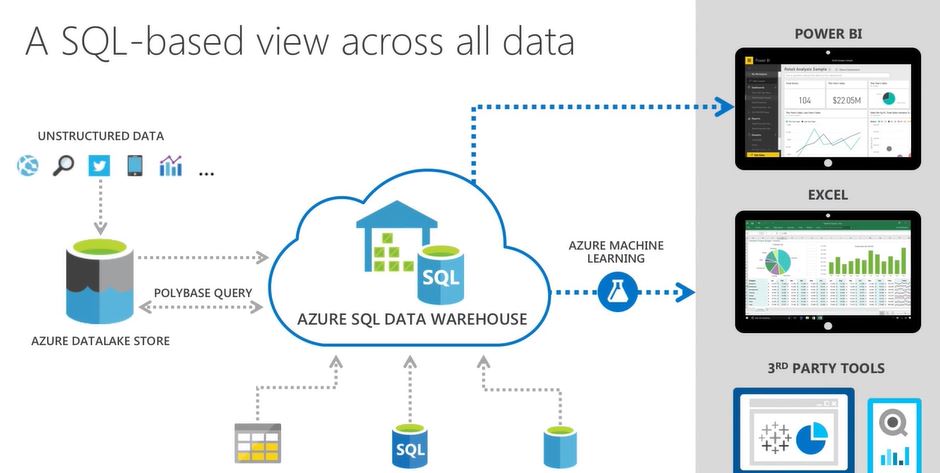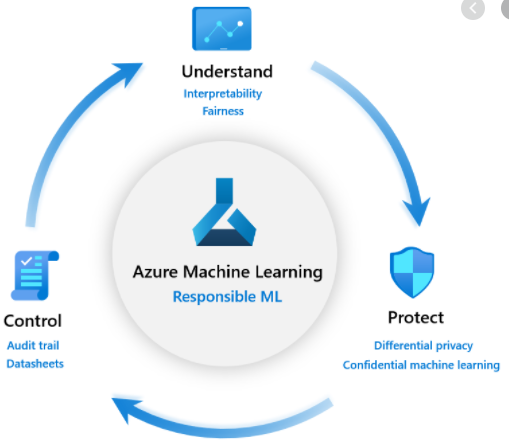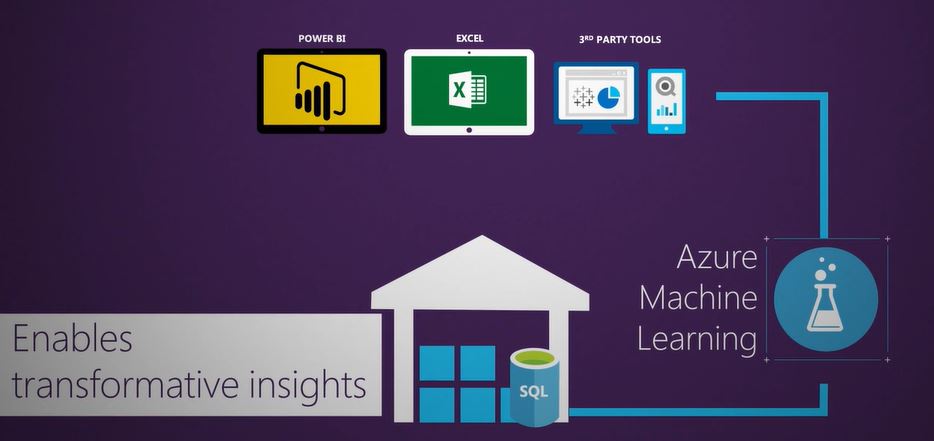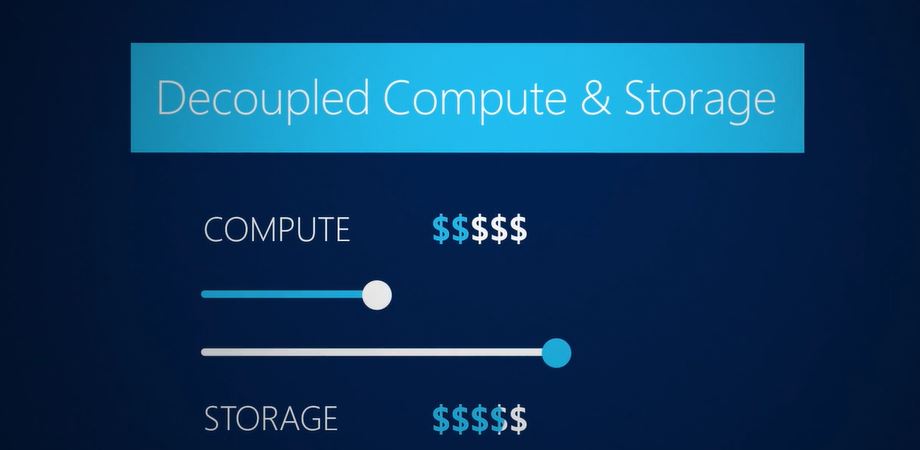Understanding Cloud Data Warehousing In Microsoft Azure
Data is highly powerful and critical to business when it comes to to generating actionable and valuable insights only if used properly. Besides, it’s also fundamental to analyzing and organizing it well. However, only a few business data is analyzed and stored appropriately. As a result, businesses lose billions every year.
The cloud storage and power of computing business data demand an effective data warehousing solution. It became a one-time investment in data warehousing system implementation that can be employed in no time rather than a significant capital expenditure. So, your business can access structured data sources, where you can collect, discover, and query insights.
Meanwhile, Microsoft has brought a cloud data warehousing solution known as Azure’s SQL Data Warehouse. It serves as one of the effective and dependable products and platforms in the data platform environment.
If it is your first time encountering cloud data warehousing in Microsoft Azure, keep reading and gather a better understanding.
Cloud Data Warehousing in Microsoft Azure Overview
MS Azure’s SQL Data Warehouse is a cloud-based Platform as a Service. It is also referred as to as massively parallel processing (MPP) relational database technology. It is a critical multi-platform architecture component of Modern Data Warehouse.
Since Azure SQL Data Warehouse is an MPP system that comes with a shared-nothing architecture, you can use it for large-scale analytical workloads and reap the advantages of parallelism. This cloud data warehousing solution allows a decoupling of storage and computation. As a result, you can achieve scalability and independent billing.

Additionally, Azure SQL Data Warehouse is an integral part of MS SQL Server product lines, including SQL Server and Azure SQL Database. So, experience and knowledge are effectively translated to Azure SQL Data Warehouse.
However, there is one exception. The MPP architecture is unique from the Azure SQL Server and SQL Database’s SMP architecture. It also requires particular design techniques to use the full capacity of MPP architecture.
What Can You Expect from MS Azure Cloud Data Warehousing?
Azure SQL Data Warehouse is known for its highly scalable and elastic cloud service. It offers compatibility with other Azure offerings such as Machine Learning and Data Factory, and different MS products and SQL Server tools.
This data warehousing solution can process a vast amount of data with the help of parallel processing. As a distributed database management system, the SQL data warehouse system has overcome the majority of the traditional data warehousing systems’ shortcomings.
Since Azure SQL Data Warehouse can quickly spread data across different processing and storage units, it becomes more suitable for batch loading, serving data in bulk, and transformation. This integrated Azure feature offers the same consistency and scalability as other Azure services.

How Azure SQL Data Warehousing Overcome the Drawbacks
Traditionally, data warehouses are consist of Symmetrical Multiprocessing (SMP) machines and two or more identical processors. They offer a full access to I/O devices since they are connected to a on shared memory.
A single OS controls them equally. However, the need for scalability has skyrocketed due to growing business demands. This what makes Azure’s SQL Data Warehouse even more critical to every organization.
Azure’s cloud data warehousing caters to all demands via shared-nothing architecture. Plus, this data storage feature in multiple locations allows processing large parallel data volumes.
Notable Features of Cloud Data Warehousing in Microsoft Azure
Do you still use an open-prem data warehouse? Then, maybe it’s time for you to switch to MS Azure SQL Data Warehouse. This Microsoft solution allows you to create a data warehouse in the cloud.
Here are the notable features of Azure’s cloud data warehousing solution:
- An excellent combination of Azure cloud scale-out capabilities and SQL Server relational database;
- Continuously compute separated from storage;
- Includes the use of T-SQL and tools;
- Scales up and down and pauses and resumes computations;
What are the Common Justifications for Azure SQL Data Warehouse Implementation?
Organizations that are new to cloud data warehousing may have a second thought about MS Azure SQL Data Warehouse implementation. To help you decide, below are the common justifications for the implementation:
Multiple Disparate Data Resources Consolidation and Relation
Once data is integrated from various resources, it becomes more valuable. For instance, the customer’s 360-degree view may align customer master data, support requests, open receivables, and sales for easy analysis.
Historical Analysis
The data warehouse is also reliable when it comes to historical data analysis using predictive analytics consulting and reporting through techniques, including slowly changing dimensions and periodic snapshots. For instance, a department rolled up this quarter, or your customer sales representative changes to a new division now. So, the report will flexibility on either “the way it is” or “the way it was” offers a critical value and often not available from traditional source systems.

Reduce Silos
Is a business-driven analytical solution critical to run your business? Then, it’s a sign that you need a solution that provides a centralized system. That way, your business is supported more effectively and integrated with other critical data with a more extensive user base.
With Azure’s cloud data warehousing, you can see the best results from your business efforts while continuously gaining value and maturity. You can also reduce silos.
User-friendly Data Structure
Structuring data to be a user-friendly dimensional model is critical as it helps the major user base option. Other techniques like helpful measures (like YTD, QTD, and MTD), and friendly column, table names contribute and derived attributes to ease of use. Data analysts are encouraged to use a data warehouse to ensure consistent outcomes and save time, money, and effort.
Existing Investment
Once you notice that your current data warehouse already fails to give you value for specific use cases, migrating all data to another architecture or retiring is not economically feasible. Instead, take advantage of a multi-platform architecture, where data is one critical component.
What are the Different Components of Azure Data Warehousing
Here are the different components of MS Azure SQL Data Warehouse to help you get more familiar with it:
Control Node
Applications and connections communicate with the control node of the system’s front-end. The control node is responsible for coordinating everything necessary to run parallel queries, from data movement to computation. That is made possible by transforming every query to run parallel in different compute nodes.
Compute Node
After the computer nodes received the queries, they are being processed and stored. Beware that the queries’ parallel processing occur with various compute nodes. Then, the results go back to the control nodes after completing the process. The outcomes are then collected and returned to the final result.
Storage
With Azure’s Blob storage, a large unstructured data amount is quickly stored. Compute nodes can read and write directly from that storage so that there is data interaction. Azure data storage has resistance to flaws and expands transparently. Plus, the storage restores data and delivers strong backup.

Data Movement Service (DMS)
Windows offers DMS that run along with SQL databases on every node type. It helps move the data between the nodes and then forms the entire process’s core part to ensure it will perform its critical role in the data movement to complete the parallel processing.
What are the Key Benefits of Cloud Data Warehousing in Microsoft Azure
Below are the key benefits you should know are Azure data warehousing:
Elasticity
Azure SQL Data Warehouse delivers an excellent elasticity because the storage and computing components are separated. You can even scale the computing independently. Even if the query runs, elimination and addition of resources are allowed.
V12 Portability
Do you want to upgrade from SQL Server to Azure SQL or vice versa? Then, Microsoft provides the necessary tools to make it happen.
Security-oriented
One of the best things about Azure SQL is that it provides different security components, including auditing, encrypting, data masking, row-level security, etc. Beware that cloud data is not exempted from cybersecurity threats. Fortunately, Azure SQL Data Warehouse offers the necessary security to keep all your data safe and secure.
Polybase
With Azure data warehousing, you can query across the non-relational sources through the Polybase.
High Scalability
As per, Azure consulting experts, it offers high scalability. In the case of Azure data warehousing, it can scale up and down quickly based on the requirements.
Other advantages of Azure SQL Data Warehouse:
- Shared-nothing architecture due to the distributed database system
- Data storage is a locally redundant storage layer
- Data distribution throughout different shared, processing, and storage units
- Receives multiple requests and readily available for distribution to allocate to a variety of compute nodes to work parallel
- Computer nodes on top of the storage layer execute queries
- Accelerates access to query performance and data
- A cost-effective solution to scale and compute storage
- Enables the user to pause and resume databases within minutes
Conclusion For sure, you do not want to be left behind when it comes to cloud data warehousing. It is more than a trend – it’s a solution. So, it’s no surprise why more and more organizations switch to MS Azure SQL Data Warehouse. Hopefully, this post will help you understand it and ensure that it suits your business needs best.

With over 25 years of experience in Information Technology and Management Consulting, Errin O’Connor has led hundreds of large-scale enterprise implementations from Business Intelligence, Power BI, Office 365, SharePoint, Exchange, IT Security, Azure and Hybrid Cloud efforts for over 165 Fortune 500 companies.
Talk to our Microsoft Gold Certified Consultants
Contact EPC Group
Call for help:
Email Us:
Head Office:
4900 Woodway Drive - Suite 830 Houston, Texas 77056


